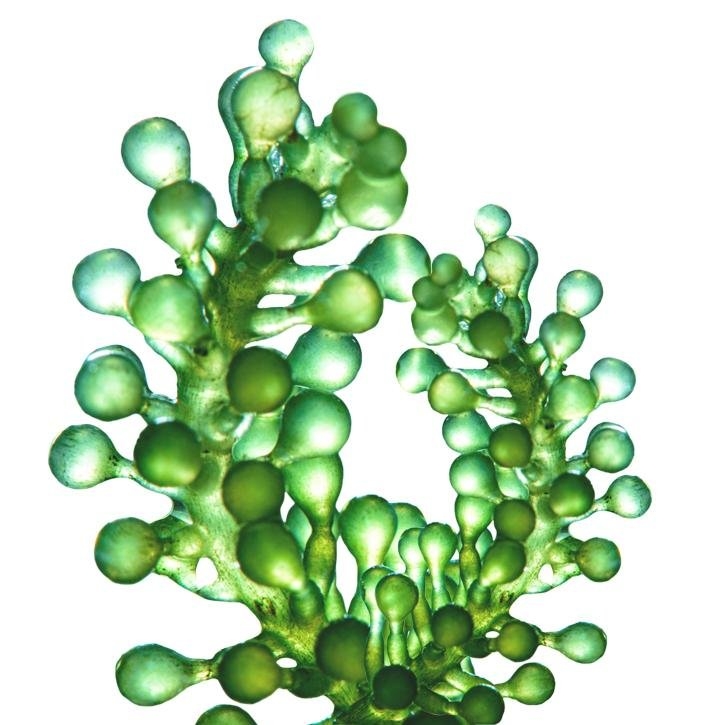Spirulina, formerly considered a blue-green algae, is actually a cyanobacterium belonging to the cyanophyceae group, i.e. it is an aquatic microorganism capable of photosynthesis (photoautotrophic). It is a unicellular organism that groups together to form filaments (trichomes). It has a central region, where the DNA molecule is located, and a peripheral region containing the thylakoids with the thylakoid membranes (where photosynthesis takes place) and other structures such as carboxysomes containing the main enzyme responsible for photosynthetic CO2 fixation, gas vesicles, storage granules, etc. The envelope consists of the plasma membrane and an outer membrane, with a peptidoglycan wall between them.
The whole dried seaweed.
They have not been described.
At recommended doses have not been described.
-.Monografía de la SEFIT (Sociedad Española de Fitoterapia).
-.Johnson M, Hassinger L, Davis J, Devor ST, DiSilvestro RA. A randomized, double blind, placebo controlled study of spirulina supplementation on indices of mental and physical fatigue in men. Int J Food Sci Nutr. 2016;67(2):203-6.
-.Lupatini AL, Colla LM, Canan C, Colla E. Potential application of microalga Spirulina platensis as a protein source. J Sci Food Agric. 2017;97(3):724-732.
-.Zeinalian R, Farhangi MA, Shariat A, Saghafi-Asl M. The effects of Spirulina platensis on anthropometric indices, appetite, lipid profile and serum vascular endothelial growth factor (VEGF) in obese individuals: a randomized double blinded placebo controlled trial. BMC Complement Altern Med. 2017; 17 (1): 225
-.Szulinska M, Gibas-Dorna M, Miller-Kasprzak E, Suliburska J, Miczke A, Walczak-Gałezewska M, et al. Spirulina maxima improves insulin sensitivity, lipid profile, and total antioxidant status in obese patients with well-treated hypertension: a randomized double-blind placebo-controlled study. Eur Rev Med Pharmacol Sci. 2017 ; 21 (10): 2473-2481.
-.Finamore A, Palmery M, Bensehaila S, Peluso I. Antioxidant, immunomodulating, and microbial-modulating activities of the sustainable and ecofriendly spirulina. Oxid Med Cell Longev. 2017.
-.Qinghua Wu, Lian Liu, Anca Mirón et al. The antioxidant, immunomodulatory and anti-inflammatory activities of Spirulina: an overview. Arch Toxicol 2016 Aug; 90(8): 1817-40.
